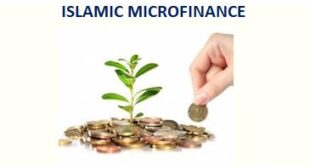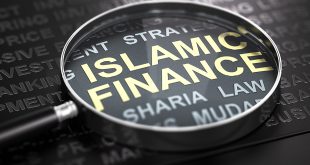Fast attracting Muslims & non-Muslims alike….
The global Islamic financial sector has witnessed an encouraging growth over the last decade and is currently estimated to be at around US$1trillion. It is predicted to be the world’s fastest-growing financial sector for the coming years with an estimated global potential of US$4trillion. Sukuks have turned out to be an important driver to raise finance under the Islamic mode of financing. In today’s business practice, the term Sukuk means a claim similar to that represented by a trust certificate. In essence, the Sukuk is a financial instrument that sits above a Shari’ah-compliant underlying structure which generates an income for the holder of the instrument. Islamic finance has many qualities that could lend themselves to securitization as a means of raising funds. Shari’ah compliant tools must have asset-driven returns for example, which is a notable feature of securitization.
Sukuk structures
There are many structures that can generate the revenue paid to Sukuk holders. Most of the Sukuk issuances to date have been wholly asset-based rather than asset-backed. In an asset-based Sukuk, the Sukuk holders rely for payment on the company seeking to raise finance (the originator), in the same way as they would under a corporate bond issue. In an asset-backed Sukuk, the Sukuk holders rely on the assets of the Sukuk for security. The issuance of convertible and exchangeable Sukuks are more recent developments. The Accounting and Auditing Organization for Islamic Financial Institutions (AAOIFI) is mainly responsible for formulating and implementing international Islamic finance standards in the market. There are about 14 different types of Sukuk described as permissible in the AAOIFI Shari’ah standards on Sukuk. Currently the AAOIFI, based in Bahrain, has issued 68 standards and is supported by more than 160 institutional members.
In terms of the types of Sukuks issued, Sukuk al Ijara was the most popular amongst corporate and governments wanting to raise funds in the Islamic debt markets. Sukuk al Ijara issues contributed 43.6% of total issues, followed by Sukuk al Musharaka at 27.5%, and then Sukuk al Mudaraba at 1 .4%. Some of the popular types of Sukuks discussed here include Sukuk al Murabaha, Sukuk al Ijara, and Sukuk al Musharaka.
Sukuk al Murabaha: This is a process of direct structuring of securities wherein a Special Purpose Vehicle (SPV) invests the funds raised through the sale of Sukuk in Murabaha operations. The company purchases the asset from the SPV on a Murabaha basis, and the future periodic installments paid by the company to the SPV account for the repayment of the cost and the profit component.
Sukuk al Ijara: The company seeking to raise finance through the issuance of Sukuk al Ijara (the originator) sells certain assets to the issuer. The issuer, then, pays for the assets using the proceeds of the Sukuk issuance and holds title to the assets on trust for the Sukuk holders. The issuer leases the assets back to the originator for a fixed period of time and for a rent. At maturity, the originator may have the right to purchase the assets back from the issuer at a price which would represent the redemption value for the Sukuk holders at maturity.
Sukuk al Musharaka: Several corporate entities refer to these Sukuk as Musharaka Term Finance Certificates (MTFCs). Under the Sukuk al Musharaka, the Sukuk holders contribute a capital amount to the issuer. The issuer then enters into a joint venture with the party seeking finance (the originator) where the issuer provides the capital received from the Sukuk holders, and the originator supplies the assets and/or their own capital required for the business to function.
The profits from the Musharaka business are distributed to the issuer and the originator at a predetermined basis. Any losses are shared in proportion to the capital contribution, and the issuer pays a periodic distribution amount to the Sukuk holders from the Musharaka profit distribution.
Sukuk gaining new heights
The increase in demand, along with the standardization of Islamic financial instruments, is expected to fuel the growth of the Sukuk market. According to Moody’s, the Sukuk market would hit US$200bn by 2010 and is predicted to grow by up to 35% during 2008. UAE and Malaysia continue to remain the most active markets for Sukuk. As per Zawya report, Gulf States raised US$18.7bn or 55% of the total US$33.4bn Sukuk issued world-wide in 2007. With the Sukuks constituting more than 40% of all bonds issued in Malaysia, the country has fast developed its market name in the Islamic world. In Malaysia, Sukuk bonds had surpassed conventional bonds for three years running with an annual turnover of above US$15bn. Growing wealth in the Middle East is increasingly demanding Shari’ah-compliant products in the Middle East and Asian regions. Such opportunities will also provide investors a chance to diversify their investments rather than being concentrated in the developed countries only.
It is estimated that investors from the GCC and Asia Pacific regions currently hold US$267bn in Shari’ah-compliant assets. The rising demand for Islamic financial products has led the financial managers to increasingly look into innovative structuring of Shari’ah-compliant financial products that will better fulfill the needs of clients. The prospects of Gulf-based pension funds and insurance industry looking at investments in Sukuks as part of their investment strategy could provide an invaluable impetus to the development of the Islamic finance industry. Indeed, the Sukuk market is the fastest emerging form of Islamic finance, estimated to be increasing at an annual average rate of 40% spurred by the high levels of surplus savings and reserves in the Middle East and Asia.
According to the London-based Trowers and Hamlins, despite an increase in return from US bonds, Western investors have become even more interested in investing in Gulf Sukuk because of their strong real value and low risk. It said the issuance of corporate Sukuk in the region, which controls more than 45% of the world’s recoverable oil resources, has jumped by nearly 20-fold over the past five years because of strong appetites for such tools.By mid-2008 the firms in the GCC have raised US$6.2bn (or 61%) in 22 issues of the total Sukuk. It is expected that the Sukuk issuance in the UAE could cross the US$9bn mark during the year. According to the available data from DIFC, the total value of Sukuks is estimated at around US$88bn, while US$13bn worth is listed on the Dubai International Financial Exchange (DIFX). Although as per S&P report the total Sukuk issuance stood at US$14bn in the eight months ending Aug. 31, down from US$23bn in the same period in 2007, the analyst still expected that the Sukuk issuance will reach US$20-25bn in 2008 given the good pipeline.
With the development of secondary markets, Sukuk offerings are appearing on specialized exchanges such as the DIFX, the Labuan Exchange in Malaysia, and the Kuwait Stock Exchange has also shown interest by setting up a market for conventional and Islamic bonds. According to a study done for the International Monetary Fund (IMF), a strong demand from Muslim countries and conventional global institutions for Shari’ah-principled bonds would boost the potential for Sukuk despite the global credit crises. However, it stated that some critical constraints relating to continued legal uncertainty and regulatory divergences ought to be addressed.
Many corporate issues—particularly large ones—are quasi-sovereign and as such are seen to benefit from an implicit sovereign guarantee. Thus, although these issues may be linked to an underlying asset, investor appetite is driven primarily by the sovereign nature of the risk. It also helps to explain successful large scale placements that have been made in recent years, including two Dubai-based issues of US$3.5bn in 2006. Currently, the top originators are the Nakheel, PCFC, Aldar Properties, and DP World from UAE, SABIC from the Kingdom of Saudi Arabia, and Nucleus from Malaysia. Together they represent about 31% of total world Sukuk issues. The majority of the Sukuks carry good ratings as per the global rating agencies like Moody’s, S&P, and Fitch. The DP World second Sukuk with an issue size of US$1.5bn carried ratings of A1 by Moody’s and A+ by S&P; DIFC Sukuk with an issue of US$1.25bn had ratings of A1 by Moody’s and A+ by S&P; Aldar Properties Sukuk II with an issue size of US$3.75bn carried ratings of A3 by Moody’s and A- by S&P; and DEWA Sukuk with an issue size of US$3.2bn carried ratings of A1 by Moody’s and AA- by Fitch.
Shari’ah Compliance Risk
Besides other risks related to financial products and services, Islamic financial products carry a specific risk termed Shari’ah compliance risk (broadly abiding to Shari’ah laws). Specifically, the risk refers to the loss of asset value as a result of the issuers’ breach of its fiduciary responsibilities with respect to compliance with Shari’ah. There could be several such instances of wilful or innocent breaches. The dissolution clauses of the Sukuk prospectus define events that will make the Sukuk deed null and void due to Shari’ah non-compliance. For example, if the Sukuk is based on a hybrid of Ijara and Istisna’ assets, Ijara must always be more than Istisna’ in the pool, otherwise the Sukuk deed will dissolve. Thus broadly speaking, Shari’ah compliance risk must be defined as a rate of return foregone in comparison to the market rates, as a result of complying with the Shari’ah. The issue hence is that of competitiveness and survival in capital markets as a Shari’ah compliant asset class. A recent controversy that has raised concern in the international markets for the growth of the Sukuk market has been following the news that a group of Islamic scholars decreed that most bonds were not Shari’ah-compliant.
Increasing popularity among non-Muslims
Sukuk offerings, while still concentrated in the Gulf States and Malaysia, are rapidly growing businesses with involvement by private companies, state enterprises, sovereign governments, Islamic financial institutions, and also non-Muslim international institutions. The increasing interest of non-Muslim participants in Islamic Shari’ah-compliant financial system, further promotes the growth of such facilities.
The World Bank issued its first local-currency dominated Malaysian Ringgits 760mn (around US$200mn) Sukuk in 2005. A noteworthy and pioneering sovereign Sukuk offering was carried out by the provincial government of Saxony Anhalt in Germany. The German Sukuk raised €100mn from both Middle Eastern and European investors. Gordon Brown from the United Kingdom, is said to have remarked on making London the ‘gateway’ for Islamic finance in Europe. The demand for Islamic financial investment structures continues, particularly related to the property sector. In a global first, the Singapore listed Cambridge Industrial Trust is being transformed into an Islamic property trust. The National Australia Bank has also shown interest to invest US$35mn for a stake in one of the world’s first listed industrial property trusts according to Shari’ah law. It will be the first publicly listed Shari’ah-compliant Real Estate Investment Trust (REIT) in Singapore.
Hong Kong is among the latest to announce its incursion into Islamic finance and plans to send missions to Kuwait, Saudi Arabia and United Arab Emirates to more closely work on such projects. It is also been reported that the Hong Kong Airport Authority is considering a Sukuk issuance. In Japan, the Financial Services Authority has proposed an amendment to the banking law that will allow Japanese banks to offer Islamic finance products through a subsidiary. Globally, it is during the last decade that multinational financial institutions like Deutsche Bank, Citigroup, Barclays, and HSBC have also entered the sector.
Going forward, we expect Islamic finance instruments especially Sukuk to maintain its growth trajectory. However, as the industry grows, more transparency and uniformity (as per the compliance to Shari’ah rules) is required in the Islamic financial products. With the increasing number of international financial institutions participating in the Islamic finance industry, the product and service innovation will benefit both corporates and consumers. Such ventures will not only benefit the development of the Islamic financial system but will also enable the major world economies to tap capital from the oil-rich Muslim states.
© Islamic Finance Today – Pioneer Publications (Pvt) Ltd
Post Disclaimer | Support Us
Support Us
The sailanmuslim.com web site entirely supported by individual donors and well wishers. If you regularly visit this site and wish to show your appreciation, or if you wish to see further development of sailanmuslim.com, please donate us
IMPORTANT : All content hosted on sailanmuslim.com is solely for non-commercial purposes and with the permission of original copyright holders. Any other use of the hosted content, such as for financial gain, requires express approval from the copyright owners.
 Sri lanka Muslims Web Portal Sri Lanka Muslims News Center
Sri lanka Muslims Web Portal Sri Lanka Muslims News Center
 Donate
Donate

